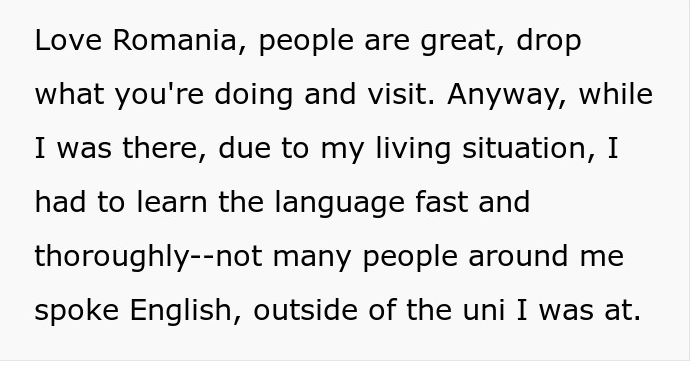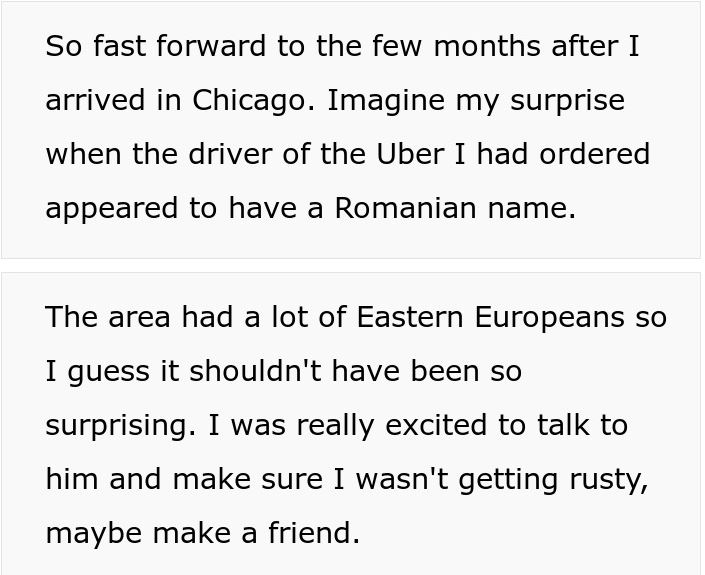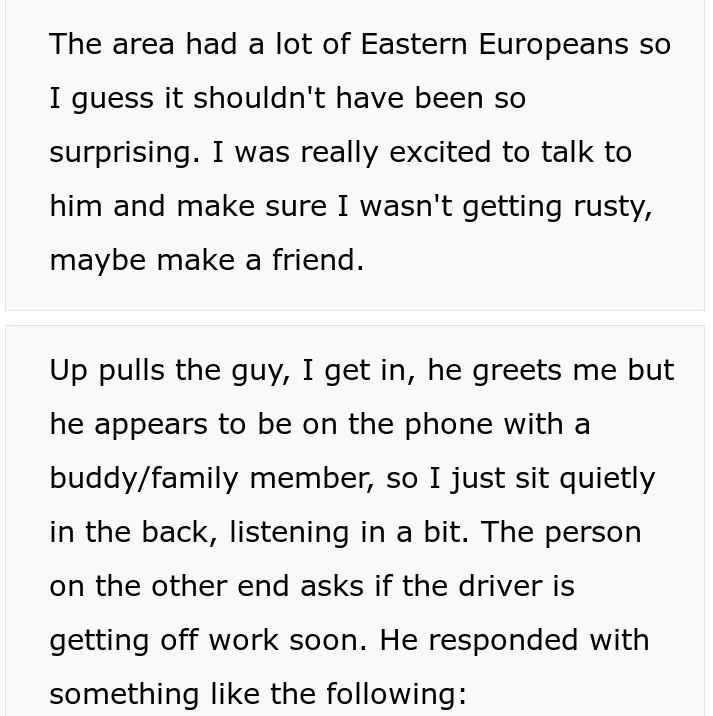Being multilingual is an invaluable skill, but knowing when to hold your tongue is even more crucial.
A cab driver learned this the hard way when he unleashed a rant about his passenger in Romanian, assuming she couldn’t understand him. Unbeknownst to him, she was fluent in the language and, by the end of the ride, she made a comment that left him utterly stunned.









Be kind and courteous to others, regardless of whether they understand you, advises polyglot Lisa, known as @polyglottelle on Instagram. In an interview with Bored Panda, Lisa shared her insights on encounters where communication can be tricky.
“I’ve had a similar experience while traveling abroad,” Lisa recalled. During a taxi ride with a local friend, the driver made unsolicited comments about her appearance, calling her “hot” and asking her friend if she was his girlfriend. “He had no idea I could understand everything because I stayed quiet,” she explained. But things took an uncomfortable turn when the driver began insulting her for being a foreigner.
Lisa kept her composure throughout the ride, but when it was time to leave, she calmly requested the driver—in his own language—to stop at a different location. “He was completely stunned that not only could I understand him, but I could respond fluently,” she said.
Though amusing at the time, this experience reminded Lisa of an important lesson. “You never know who might be listening and understanding, so it’s important to be mindful of your words,” she reflected. “What you say can hurt people or cause unpleasant situations.”
Her advice? “Always be polite and friendly to others, no matter whether they understand you or not.”
On language learning, Lisa, originally from Germany, speaks four languages—German, English, Spanish, and Portuguese—and is currently learning three more in her quest to master 15 languages.
One of the things Lisa loves most about learning new languages is the cultural connection. “Even if it’s the same language, cultural nuances shape how it’s used and truly reflect the mindset of the people,” she said.
She finds idioms and untranslatable expressions especially intriguing. For example, the Portuguese word saudade, which expresses a deep feeling of longing or nostalgia, and the German word fernweh, which describes the longing to be in a place you’ve never visited but still miss.
Achieving fluency requires time and commitment, but Lisa has some practical tips for beginners. “Start by watching YouTube videos for beginners, reading your favorite books, or watching familiar movies and shows,” she suggests.
“When you already know the story, you don’t need to focus on the plot. Instead, concentrate on picking up the language,” she explained. “I personally enjoy watching travel vlogs or ‘day in my life’ videos because the visuals help you understand the context, and repetitive words stick in your memory naturally.”
Lisa agrees with the common advice to speak from day one but notes that it’s not always easy to find someone to practice with. “Start by talking to yourself or reading sentences out loud,” she recommends. “It helps build muscle memory, so when you finally have a conversation, it’ll feel more natural.”

